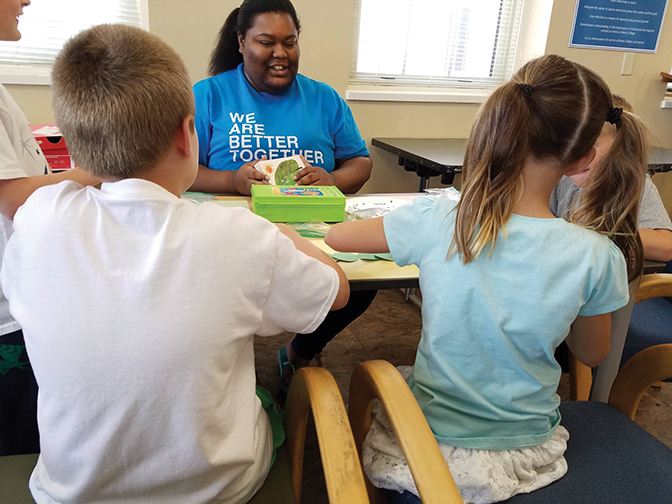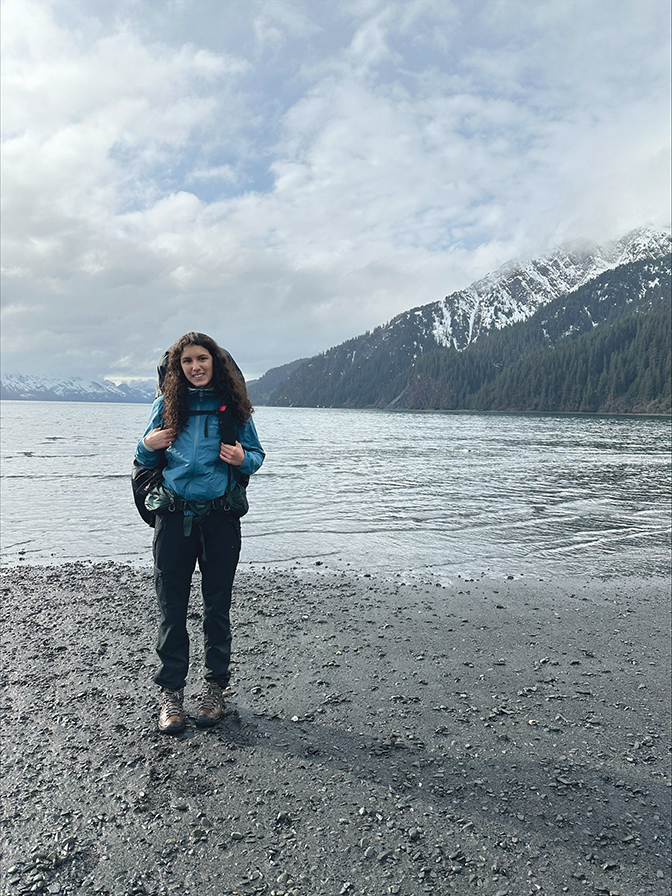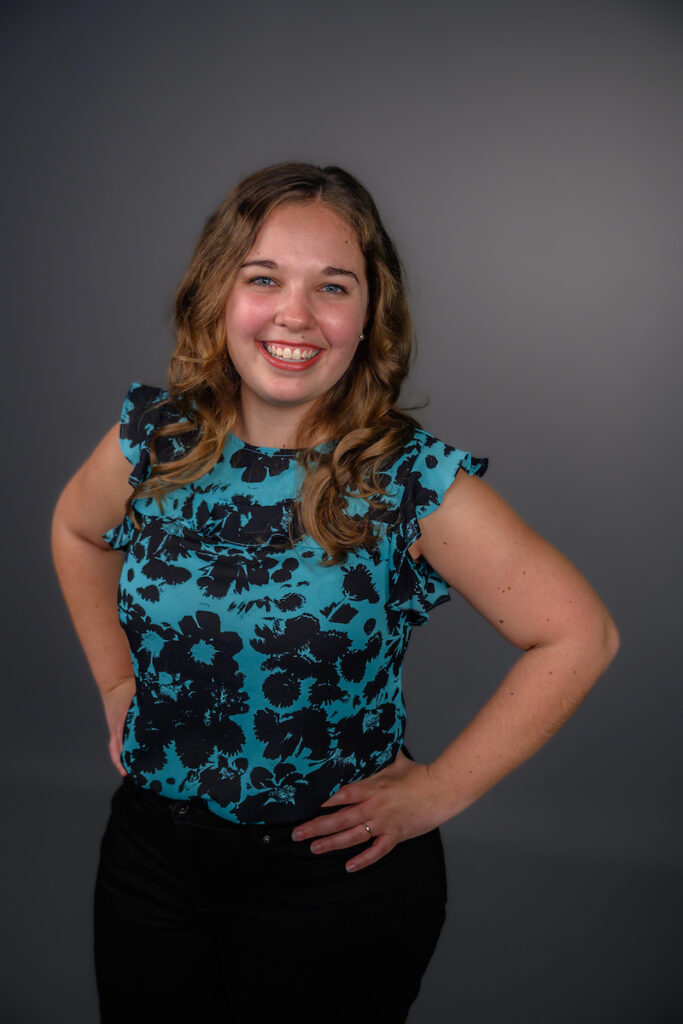Destiny Askew ’18 knew she wanted to spend time away from her home in Birmingham, Ala., to study at Berea College. She also knew there would be challenges. She has two learning disabilities and would be distant from her mother, her main support system. So, when the opportunity arose to join the Emerging Scholars Program, she signed up.
“Since I was away from home, we decided it might be a good idea to have extra help,” she said. “I wanted as many understanding people as I could have on my side when things got iffy.”

Askew was an early participant in Berea’s Emerging Scholars Program (ESP), a federally funded initiative that supports disadvantaged college students. A decade ago, College leaders realized the low-income and first-generation college students they served could benefit from additional support to overcome their additional barriers to graduation. The program was the first group on campus to provide wrap-around services to help meet students’ academic, financial, personal and career goals. It is now part of the broader work of the Office of Student Success and Transition.
An orientation kick-off is the first chance for the scholars to engage in the program. As first-year students, they arrive three days early to settle in, find their way around campus and begin to form relationships with other ESP students. Another ESP student, Alana ’26, has just completed her first year and said the extra transition time increased her confidence going into that first semester.

“I am from Anchorage, Alaska, and didn’t know anyone in my class before I arrived,” she said. “It was scary coming across the country by myself, and I was able to make some good friends before the year even started.”
The foundation of the program is a weekly class, GST 101: Strategies for Academic Success. Part of the curriculum is academic, providing an orientation to college-level course work and building a base level of skills. Another main goal is introducing students to on-campus resources. ESP staff leads collaborative sessions with writing resources, financial aid, counseling services and career development staff.
The class also covers a “hidden curriculum.” Often, students without previous exposure to college life don’t even know what questions to ask. ESP staff provides support in a non-threatening environment. They cover basic how-to skills like deciphering communications from the administration, navigating the college website and building relationships with professors.
“Learning how to be my own advocate in class was big,” Askew said. “I didn’t realize how much expectations needed to be extra clear because of my learning disabilities.”
Conversations introduce internship and study-abroad possibilities so students can start imagining those options for themselves. The class has proven so helpful, the College has adopted the course as an optional offering for all first-year students.
Each ESP student is matched with an academic counselor for three advising meetings per semester. One-on-one sessions focus on personal goal setting and working through concerns. Some scholars need guidance on a curriculum plan and class sequencing in order to graduate on time. Others need help with the nitty-gritty work of time management and scheduling.
Another common topic is cause and effect: how much time students dedicate to study and how that level of dedication reflects in their grades. The final session is a focused reflection, a time for students to consider what they might want to do differently going forward.
“We want them to be intentional about growing,” said Elle Keys ’18, one of the program’s two academic counselors.

Keys loves the chance to nurture students’ academic success. She shared about one student who was struggling with information overload in a class. Through the conversation, she realized the student didn’t know how to take notes or how to discern what was important enough to write down. She pulled out her whiteboard markers and created a diagram. The two talked through hypothetical situations and then brainstormed how to study using the notes.
The ESP staff has a holistic perspective and strives to be a one-stop-shop for students. They can problem-solve on a variety of topics; if they don’t know the answer, they know who to ask. Student inquiries have included where to get a broken pair of glasses fixed and tips on buying a car in Kentucky. Alana appreciated that they provided airport transportation for students like her arriving by plane.
While GST 101 and academic counseling are the foundations of ESP, the core of it is relationships. Through spending time together and compassionately reaching out, staff form bonds of real concern with the scholars. They sponsor drop-in events, like a breakfast gathering during registration. Having the staff available in case there are any issues can bring a sense of calm to a stressful time.
“I was shell-shocked at having so much freedom at college,” Askew said. “The ESP staff checked on me regularly and kept me from making major mistakes my first semester. Even when I wasn’t active in the program after my sophomore year, I would go into the counselor’s office and talk with him to get advice.”
The COVID-19 pandemic experience opened the eyes of staff to how concerning finding community and making friends are to students. Through outings to the Newport Aquarium and the Muhammad Ali Museum, the cohort of scholars form tight bonds with each other.
Part of the reason I was academically successful in high school was because of the community I built and the support of teachers and students. ESP gave me a safe environment to have that at college. Going to Mammoth Cave with the group was a highlight of my [first] year.
Alana ’26
“Part of the reason I was academically successful in high school was because of the community I built and the support of teachers and students,” Alana said. “ESP gave me a safe environment to have that at college. Going to Mammoth Cave with the group was a highlight of my [first] year.”
ESP can only accept 70 students a year, and the program always receives more applicants than it can serve. Since so many Bereans come from disadvantaged backgrounds, leaders specifically target students from places that historically have had the lowest graduation rates: Appalachian counties identified as economically distressed and large, urban areas.
ESP’s holistic approach is making a difference. Comparing recent six-year graduation rates, 71 percent of ESP students completed a degree versus 67 percent of the entire student body. In the 2019 academic year, 88 percent of emerging scholars returned as sophomores, while only 73 percent of their peers from economically at-risk counties returned.
ESP runs for two years, with an option for students to continue beyond that. “More of our students are choosing to remain active after their sophomore year,” said Laney Coleman, ESP director. “They have a good relationship with their academic counselor. Our programming gives them experiences they wouldn’t have otherwise, and they really feel we are their cheerleaders.”


